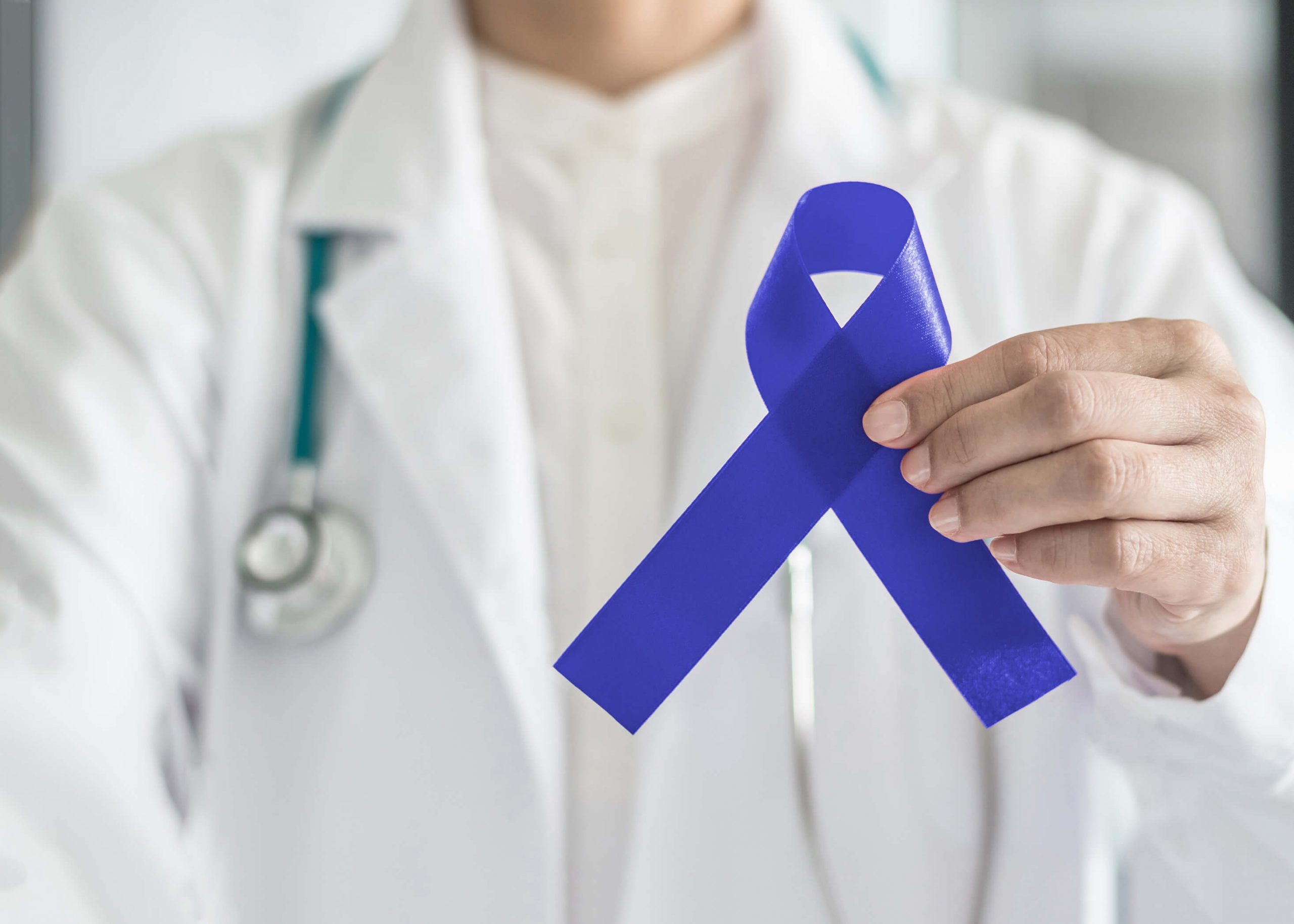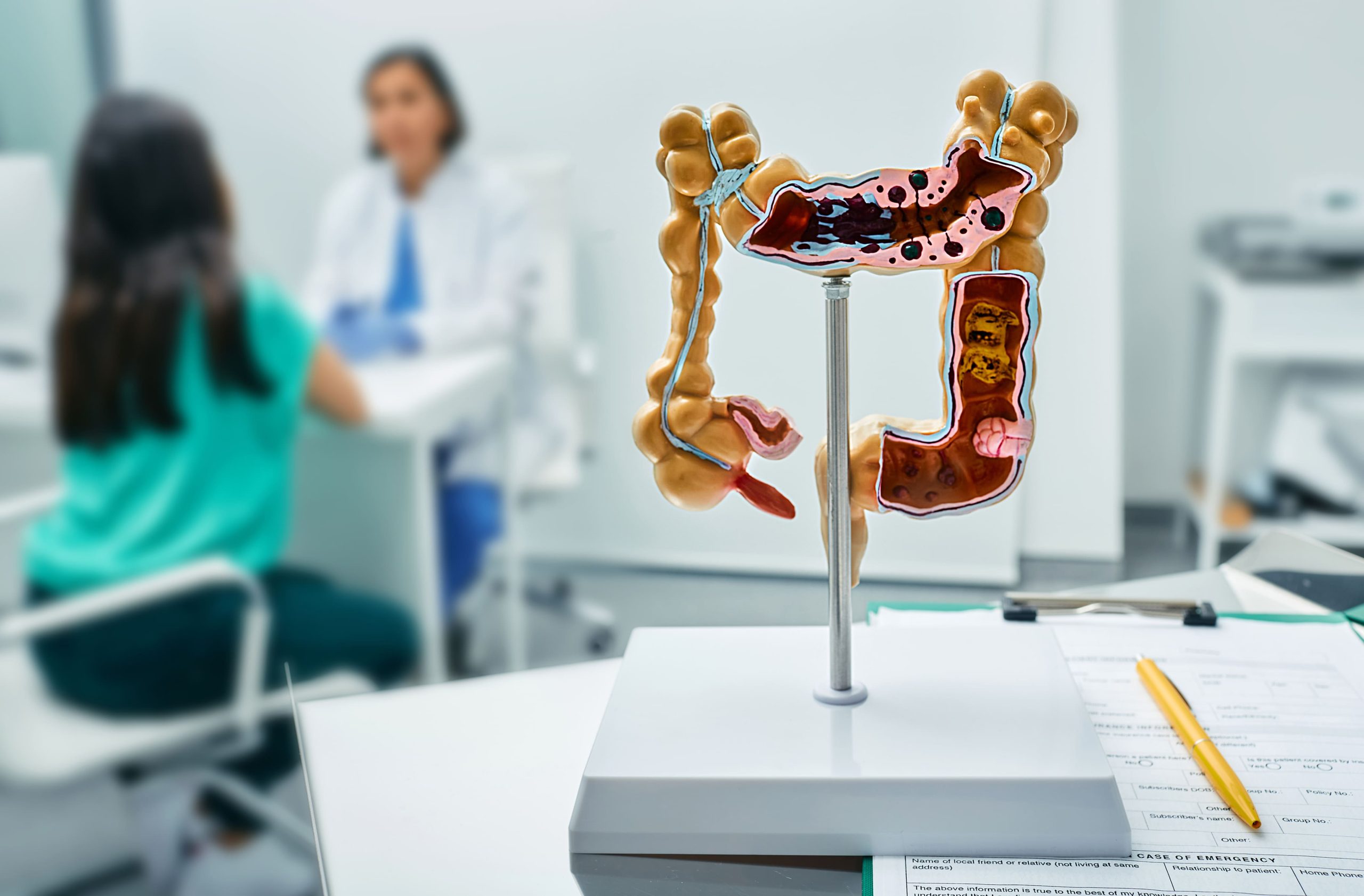Colorectal Health
Colorectal Cancer Screening: Find Out If You Are at Risk
Medically reviewed by Dr. Sim Hsien Lin

Colorectal Cancer Facts
Colorectal cancer, also known as colon or rectal cancer, is a type of cancer that develops in the large intestine or rectum. Both the large intestine and rectum are part of the lower region in the digestive system.
Colorectal cancer typically begins when healthy cells in the inner walls of the colon or rectum grow into small, non-cancerous or benign lumps called polyps. If left untreated or removed, these polyps may develop into life-threatening cancer.
According to the Singapore Cancer Registry, colorectal cancer is one of the top 3 leading cancers in Singapore, with approximately 1,500 patients diagnosed each year.
Colorectal cancer is also the:
- No.1 most common cancer in men (about 17% or 1 in 6 male cancer patients)
- No. 2 most common cancer in women (about 16% or 1 in 7 female cancer patients)
Symptoms
Common symptoms of colorectal cancer include:
- Change in your bowel routines, such as persistent diarrhoea or constipation
- Blood in your stools
- Changes to your stool calibre
- Rectal bleeding
- Constant abdominal discomforts, such as cramps or pain
- A feeling of your bowel not emptied completely
- Fatigue, lethargy or feeling weak
- Unexplained weight loss
However, it is important to note that colorectal cancer is generally asymptomatic in its early stages. When symptoms start to show up, chances of treatment is dependent on the local extent and stage of the cancer.
What Is Colorectal Cancer Screening?
Colorectal cancer screening involves performing tests in people at risk but have no symptoms. Screening is usually done to identify the early stages of colorectal cancer or detect polyps before they turn cancerous. There are various types of screening methods used today, which will be covered later in this article.
Why Is Screening Important?
Colorectal cancer screening is crucial in preventing or detecting colorectal cancer early.
The early stages of colorectal cancer usually develop from non-cancerous (benign) polyps and may take about 5 to 10 years for them to mutate into its more cancerous form (malignant). During this period, these polyps typically do not cause any noticeable symptoms. Hence, without screening, you are highly unlikely to realise if you are at risk of colorectal cancer or may already have colorectal cancer in its early stage. Even if these polyps have turned cancerous, early detection allows them to be removed before they spread to other parts of your body.
Therefore, it is important to undergo colorectal screening to detect any potential polyps growing inside your colon or rectum.
Who Should Undergo Screening and How Often?
As a general guideline, you should begin screening for colorectal cancer as soon as you turn 50, and continue being screened regularly. The frequency of screening will depend on your risk factors.
If you are classified under average risk, meaning that you do not experience any symptoms or have no family history of colorectal cancer (non-first degree relatives or not within your immediate family), you should begin screening at 50 years old. Subsequently, it is generally recommended that you undergo stool testing annually or colonoscopy every 10 years.
On the other hand, if risk factors are present, you should begin screening earlier, even before 50 years old.
You have increased risks of colorectal cancer if you have:
- A family history of colorectal cancer (First degree or within your immediate family)
- A personal history of colorectal polyps or colorectal malignancy
- Inflammatory bowel disease
- A personal history of ovarian or endometrial cancer
- Symptoms of colorectal cancer
Furthermore, your lifestyle habits also play a critical and significant part in potentially developing colorectal cancer.
This includes:
- Excessive smoking or consumption of alcohol
- A predominantly high-fat diet consisting of red and processed meats
- Lack of fruits and vegetables in your diet
- Lack of exercise
If you belong to these high-risk groups, it is recommended that you undergo screening even before 50 years old and as frequent as 1 to 5 years, depending on the risk level.
You should consult your doctor if you are unsure of when and how frequent you should begin colorectal cancer screening, especially if you have a personal history of colorectal polyps, any family history of colorectal cancer or other types of cancer.
What Screening Options Are Available?
There are various types of screening methods used to screen for colorectal cancer.
The most common types include:
Fecal immunochemical test (FIT)
- Detect the presence of traces of blood in your stool samples which are not visibly apparent
- Yearly screening is recommended if you choose occult blood stool testing
Colonoscopy
- Examination of your entire colon or rectum by inserting a thin, flexible tube with a tiny video camera at the tip (colonoscope) into the rectum and through the large intestine.
- This method is the most comprehensive and accurate screening test as it allows for the complete inspection of the colon and detect and potentially remove polyps.
- Bowel preparation is required, which either takes the form of a high-volume (3-4 litres) polyethylene glycol (PEG) or low-volume (90ml) oral fleet.
- You will be sedated throughout the screening procedure.
Sigmoidoscopy
- Like colonoscopy, your doctor may recommend sigmoidoscopy to check for polyps or any other signs of cancer. However, the doctor will mainly examine the rectum and left-sided colon.
Virtual Colonoscopy
- A less invasive procedure as compared to traditional colonoscopy, which involves the use of special x-ray equipment to generate images of the colon and the rectum.
- This method does not require you to be sedated, but bowel preparation is still needed.
Conclusion
Colorectal cancer may be one of the most common types of cancer in Singapore, but it can be prevented and treated if detected early. Thus, colorectal cancer screening is the key to reducing the risk of life-threatening colorectal cancer.
Contact our colorectal specialist to assess your requirement for a screening test and get screened for colorectal cancer.
WHO WE ARE
About SOG Health Pte. Ltd.
Established in 2011, SOG Health Pte. Ltd. (“SOG”) is a leading healthcare service provider dedicated to delivering holistic health and wellness services to the modern family.
With a long and established track record in Singapore providing Obstetrics and Gynaecology (“O&G”) services such as pre-pregnancy counselling, delivery, pregnancy and post-delivery care, the Group has since further expanded its spectrum of healthcare services to include Paediatrics, Dermatology, and Cancer-related General Surgery (Colorectal, Breast & Thyroid).
The Group’s clinics, under its four operating segments of O&G, Paediatrics, Oncology and Dermatology, are strategically located throughout Singapore to provide easy access to its patients.
- Obstetrics
- Gynaecology
- GynaeOncology
- Breast, Thyroid & General Surgery
- Colorectal, Endoscopy & General Surgery
- Dermatology
- Paediatrics
Consult With A Specialist From SOG
Visit one of our specialists today to learn more about your health!
Recommended Specialists
Book An Appointment
Fill up this form and our clinic will get back to you shortly.
For general enquiries, please click here.





